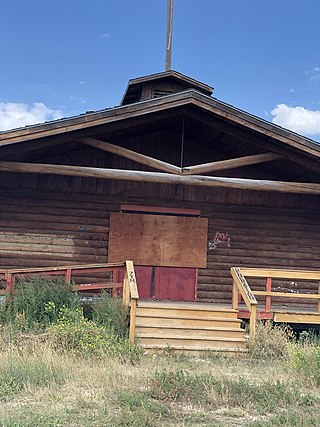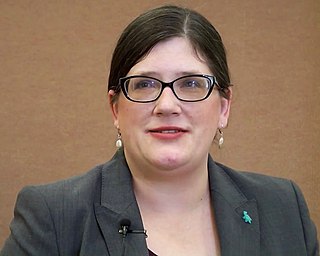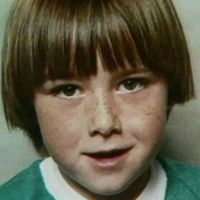Related Research Articles
In Australian Aboriginal mythology, the Wati kutjara are two young lizard-men who, in the Dreaming, travelled all over the Western Desert. In English, their songline is often called the Two Men Dreaming. The Wati kutjara are ubiquitous in the mythology of the Western Desert; Their journey extends for thousands of kilometres, stretching from the Kimberley to South Australia.

Last Tango in Paris is a 1972 erotic drama film directed by Bernardo Bertolucci. The film stars Marlon Brando, Maria Schneider and Jean-Pierre Léaud, and portrays a recently widowed American who begins an anonymous sexual relationship with a young Parisian woman.
Sexual assault is an act in which one intentionally sexually touches another person without that person's consent, or coerces or physically forces a person to engage in a sexual act against their will. It is a form of sexual violence that includes child sexual abuse, groping, rape, drug facilitated sexual assault, and the torture of the person in a sexual manner.

William John Janklow was an American lawyer and politician and member of the Republican Party who holds the record for the longest tenure as Governor of South Dakota: sixteen years in office. Janklow had the third-longest gubernatorial tenure in post-Constitutional U.S. history at 5,851 days.

The Scottsboro Boys were nine African American male teenagers accused in Alabama of raping two white women in 1931. The landmark set of legal cases from this incident dealt with racism and the right to a fair trial. The cases included a lynch mob before the suspects had been indicted, all-white juries, rushed trials, and disruptive mobs. It is commonly cited as an example of a legal injustice in the United States legal system.

Talthybius was herald and friend to Agamemnon in the Trojan War. Talthybius is a Greek soldier who serves as both a messenger and a herald during the time of the Trojan War. Only two mortal men are present in Euripides’ play The Trojan Women, and Talthybius is the one who interacts with the Trojan women the most. Although he represents a hostile nation, he surprisingly shows his vulnerable side and affection towards these women. Even though he must obey orders he does make an effort to lessen their suffering. Talthybius is a complex character who tries to be empathetic despite enabling the rape and enslavement of Troy's women.
During World War II, the Allies committed legally proven war crimes and violations of the laws of war against either civilians or military personnel of the Axis powers. At the end of World War II, many trials of Axis war criminals took place, most famously the Nuremberg Trials and Tokyo Trials. In Europe, these tribunals were set up under the authority of the London Charter, which only considered allegations of war crimes committed by people who acted in the interests of the Axis powers. Some war crimes involving Allied personnel were investigated by the Allied powers and led in some instances to courts-martial. Some incidents alleged by historians to have been crimes under the law of war in operation at the time were, for a variety of reasons, not investigated by the Allied powers during the war, or were investigated but not prosecuted.

The Bindjareb, Binjareb, Pindjarup or Pinjareb are an Indigenous Noongar people that occupy part of the South West of Western Australia.

The Wounded Knee Occupation, also known as Second Wounded Knee, began on February 27, 1973, when approximately 200 Oglala Lakota and followers of the American Indian Movement (AIM) seized and occupied the town of Wounded Knee, South Dakota, United States, on the Pine Ridge Indian Reservation. The protest followed the failure of an effort of the Oglala Sioux Civil Rights Organization (OSCRO) to use impeachment to remove tribal president Richard Wilson, whom they accused of corruption and abuse of opponents. Additionally, protesters criticized the United States government's failure to fulfill treaties with Native American people and demanded the reopening of treaty negotiations to hopefully arrive at fair and equitable treatment of Native Americans.
Rape can be categorized in different ways: for example, by reference to the situation in which it occurs, by the identity or characteristics of the victim, and by the identity or characteristics of the perpetrator. These categories are referred to as types of rape. The types described below are not mutually exclusive: a given rape can fit into multiple categories, by for example being both a prison rape and a gang rape, or both a custodial rape and the rape of a child.
The Jhabua nuns rape case refers to the gang rape of four nuns in the Jhabua district of Madhya Pradesh in India on September 23, 1998, by tribal men. Around 18-26 men barged their way into the Ashram where the nuns lived and ransacked the entire ashram and some of the men gang raped the nuns.

The Deir Yassin massacre took place on April 9, 1948, when around 130 fighters from the Zionist paramilitary groups Irgun and Lehi killed at least 107 Palestinian Arab villagers, including women and children, in Deir Yassin, a village of roughly 600 people near Jerusalem, despite having earlier agreed to a peace pact. The massacre occurred while Jewish militia sought to relieve the blockade of Jerusalem during the civil war that preceded the end of British rule in Palestine.

Creatures the World Forgot is a 1971 British adventure film directed by Don Chaffey and produced and written for Hammer Films by Michael Carreras. The film concentrates on the daily struggle to survive of a tribe of Stone Age men. Very little dialogue is spoken throughout the film, apart from a few grunts and gestures.

Jancita Eagle Deer was a Brulé Lakota who lived on the Rosebud Indian Reservation in South Dakota. She was notable for accusing William Janklow of having raped her in January 1967 when he was a poverty lawyer and Director of the Rosebud Sioux Legal Services program on the reservation. She had worked as his babysitter. At the time the Bureau of Indian Affairs (BIA) and the Federal Bureau of Investigation (FBI) did not prosecute the case.
During the 1971 Bangladesh Liberation War, members of the Pakistani military and Razakar paramilitary force raped between 200,000 and 400,000 Bengali women and girls in a systematic campaign of genocidal rape. Most of the rape victims of the Pakistani Army and its allies were Hindu women. Some of these women died in captivity or committed suicide, while others moved from Bangladesh to India. Imams and Muslim religious leaders declared the women "war booty”. The activists and leaders of Islamic parties are also accused to be involved in the rapes and abduction of women.

The Round House is a novel by the American writer Louise Erdrich first published on October 2, 2012 by HarperCollins. The Round House is Erdrich's 14th novel and is part of her "justice trilogy" of novels, which includes The Plague of Doves released in 2008 and LaRose in 2016. The Round House follows the story of Joe Coutts, a 13-year-old boy who is frustrated with the poor investigation into his mother's gruesome attack and sets out to find his mother's attacker with the help of his best friends, Cappy, Angus, and Zack. Like most of Erdrich's other works, The Round House is set on an Ojibwe reservation in North Dakota.

Sarah Deer is a Native American lawyer, and a professor of Women, Gender, and Sexuality studies and Public Affairs and Administration at the University of Kansas. She was a 2014 MacArthur fellow and has been inducted into the National Women's Hall of Fame.

Kylie Maria Antonia Maybury was an Australian schoolgirl from Preston, an inner-city suburb of Melbourne, Victoria, Australia. Maybury was kidnapped, raped, and murdered on 6 November 1984, the date of the 1984 Melbourne Cup Day; and she was nicknamed in the Melbourne tabloid newspaper The Sun News-Pictorial as the Cup Day Girl.
The Nunukul, also spelt Noonuccal and known also as Moondjan are an Aboriginal Australian people, one of three Quandamooka peoples, who traditionally lived on Minjerribah, in Moreton Bay Area and in mainland Brisbane regions.
The Ngawait, also spelt Ngawadj and other variations, and also known as Eritark and other names, were an Aboriginal Australian people of the mid-Riverland region, spanning the Murray River in South Australia. They have sometimes been referred to as part of the Meru people, a larger grouping which could also include the Ngaiawang and Erawirung peoples. There were at least two clans or sub-groups of the Ngawait people, the Barmerara Meru and Muljulpero maru.
References
- ↑ Radcliffe-Brown, Alfred Reginald; Firth, Raymond; Elkin, Adolphus Peter (1942). Oceania: A Journal Devoted to the Study of the Native Peoples of Australia, New Guinea, and the Islands of the Pacific Ocean. University of Sydney. p. 11.
- ↑ International Encyclopaedia of Tribal Religion: Tribal cosmology, myths and world view. Cosmo Publications. 2000. p. 227. ISBN 978-81-7755-042-9.
